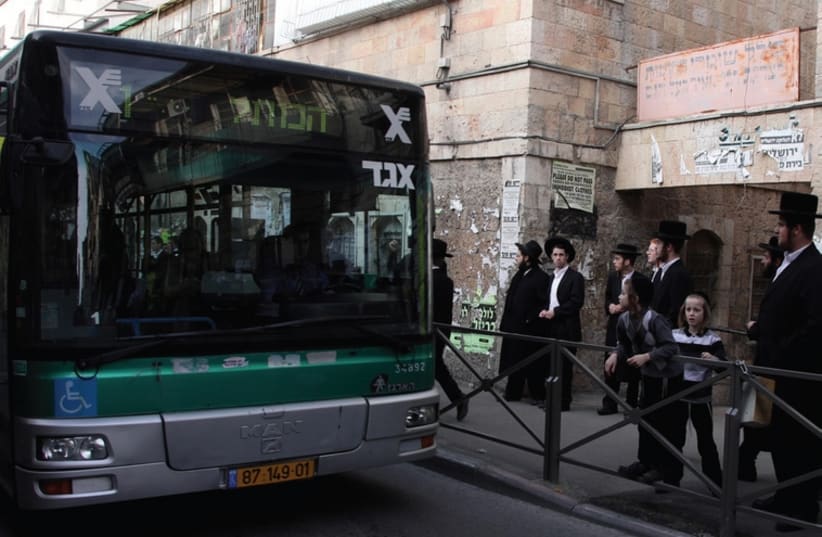See the latest opinion pieces on our page
Katz’s response was both a dig to his political opponents on the Left and caustic to his Facebook interlocutors: “The display of hypocrisy by you and your friends on the Left... was proven in the last election and got the appropriate response at the polls.”Katz noted that Isaac Herzog, the chairman of the Zionist Union, never promised to change the religious status quo, implying that doing so was unpopular.The Transportation Ministry took a similar tone: “Those demanding that public transport run on Saturdays and holidays do not represent the majority of public transport users, but rather foundations and groups mostly associated with the Left and systematically working against the government, as we saw in the last election.”Now a group of Israelis demanding public transportation have organized a petition, which, as of this writing, had obtained nearly 25,000 signatures.Infighting over public transportation on Shabbat and other aspects of Israel’s “Jewish” character is nothing new.Over the years striking the right balance between democracy, individual rights and freedom on one hand and maintaining the unique qualities of the world’s only Jewish state has generated tension and has even sparked violence.Experience has shown that an informal and relatively flexible “status quo” – not legislation or Supreme Court rulings – has been the best recipe for success.Katz is right that a clear majority of Jewish Israelis favor the general contours of the status quo. They want the Law of Return to continue to help ensure that Israel maintains a Jewish majority. They want state offices and the IDF to continue to provide kosher food to employees and soldiers.Even marriages and divorces that are controlled by the Chief Rabbinate and that prevent intermarriage are largely backed by a large proportion of the population.At the same time, Jewish Israelis have generally managed to ensure that individuals are able to exercise personal freedoms, sometimes at a cost.Those unwilling or unable to marry via the Chief Rabbinate have the option of taking a short plane trip to Cyprus or some other nearby location and tie the knot in a civil ceremony. Upon return, this civil union is recognized by the State of Israel.In the wake of the disintegration of the Soviet Union, waves of emigrants from Russia, Ukraine and elsewhere swept into Israel, bringing with them their own unique tastes. Within a short time, a thriving market for pork was created. Market forces found ways to overcome municipal bylaws prohibiting the sale of the meat traditionally shunned by Jews.There have also been changes in the opposite direction to accommodate a more religious bent. The IDF, which in the past took a melting pot approach that encouraged – even coerced – soldiers to conform to a particular mold, has in recent decades created frameworks that enable haredi soldiers to maintain strict segregation of the sexes, eat super-kosher food and allot time to Torah study while discharging their duty to their country.Similarly, solutions can be found to make it easier for Israelis who do not own a car and want to travel on Shabbat without radically changing the status quo through legislation or a petition to the Supreme Court. Private transportation initiatives – known as service taxis, or moniot shirut in Hebrew – provide intra and inter-city transportation at about the same price as public transportation.Ideally, guidelines should be hammered out through open discourse and mutual compromise. But as long as politicians such as Katz adopt a confrontational attitude, there is little chance of this happening. In the meantime, an imperfect but workable modus operandi has developed.
Shabbat buses
It has been almost 67 years since we Jews established a state of our own, but we still cannot seem to agree on how Jewish that state should be.
